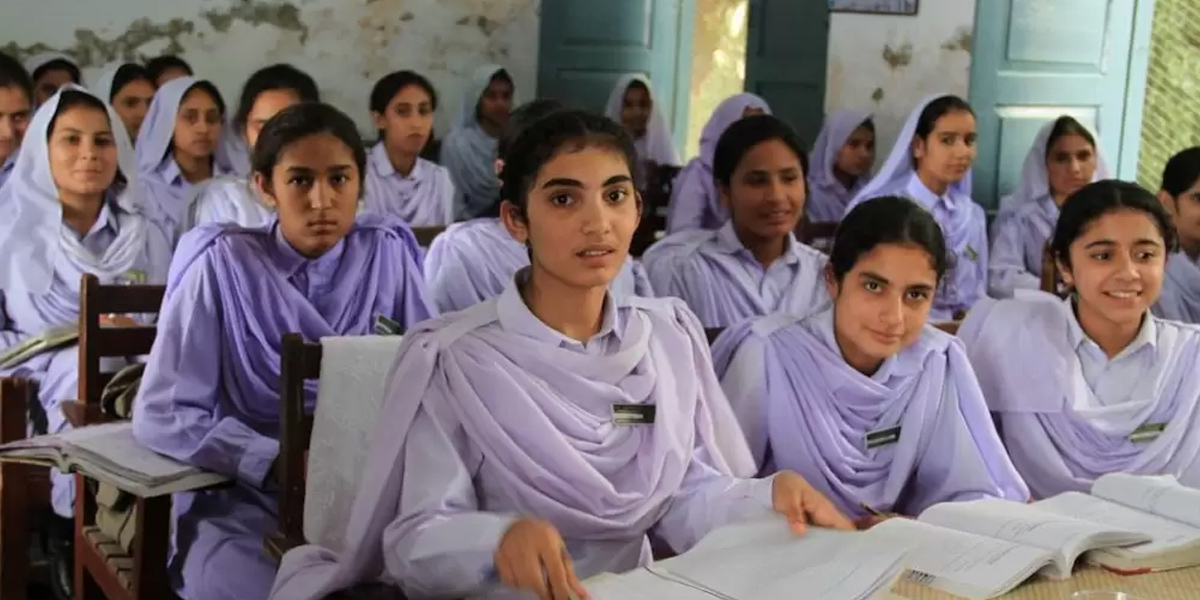Education and development come hand in hand. It is not possible to achieve sustainable economic development without substantial investment in the education sector, as only education has the power to generate sumptuous human capital. Education not only enhances people’s perception of themselves and the world but also improves their wellbeing and leads to extensive social benefits to individuals and society along with raising people’s efficiency and creativity and encouraging entrepreneurship and technological developments. Additionally, education lays the foundation for social, political, and economic development of a country.

One of the reasons behind Pakistan’s lagging behind in the economic domain is the structural flaws in its education system. According to Economic Survey for Pakistan, Pakistan has a 60% literacy rate, with female illiteracy worse than that of men because of the overarching patriarchal culture and challenging conditions for females, and hence this factor adds greatly to Pakistani women’s decreased participation in the economic domain.
The persistent loopholes in education system which hamper women’s economic participation include a less number of female educational institutes. Since Pakistan has a patriarchal society, a lot of parents do not allow their daughters to study in coed institutes, hence separate educational institutes for female students are needed.
Gender-based segregation of academic disciplines happens to be another impediment in females’ economic empowerment. In the Pakistani society, the few girls who tend to acquire higher education, are encouraged and allowed to do so in limited fields only e.g. medical, natural sciences etc. This limitation impedes them from pursuing careers of their own choice and interest. Since, the institutes offering these disciplines cannot accommodate a lot of students, only few get a chance to acquire higher education. Moreover, the few females that get the chance to pursue education get to study an outdated curriculum, hence the professionals yielded from such a system aren’t able to compete in the international job market.

The uneven distribution of educational institutes also happens to be a huge issue. Since most of the universities and colleges are located in urban centers, students from far flung rural areas have to leave their homes and settle in cities for acquiring higher education, and socio-cultural barriers prohibit female students from leaving their houses, hence they are deprived of higher education despite their desire to achieve it. Moreover, the lack of female vocational training institutions is another issue that impedes women economic participation. Since the current job market demands skilled people, the lack of such institutions restricts women from getting allocated in the job market. Such prevalent issues lead to the production of individuals who aren’t well versed with the ways to formally enter the economic domain.
It is highly essential to revamp the education system in order to enable women to contribute in the formal economy, as the prosperity of Pakistan is highly dependent on its economic progress. The government should ensure the comprehensive implementation of article 25-A of the Constitution of Pakistan, which gives the right of free and compulsory education to all the children between the ages five and sixteen. Both the public and development sector should invest in promoting female education in the country, as this will not only enhance their economic participation, but will also make them aware of their rights and responsibilities along with empowering them to represent Pakistan internationally. This can be done by increasing the number of female formal and vocational educational institutes, particularly in the rural areas, providing distance learning opportunities for girls who are not allowed to leave their houses for getting education, upgrading the curriculum as per the international level, launching awareness campaigns especially in the rural areas to make the inhabitants aware of the significance and benefits of education, providing incentives to families to encourage them to send their daughters to school, improving the security of schools so parents think it’s safe to send their daughters to school. Taking these steps will help in yielding females students with a higher intellect and a practical skill base, who will not only assist Pakistan economically, but will also help in raising better future generations.

